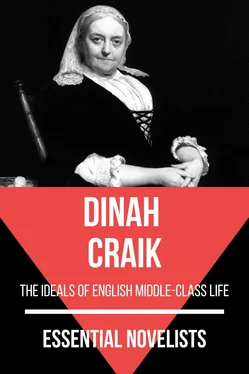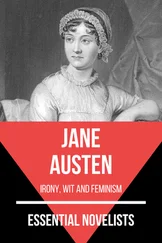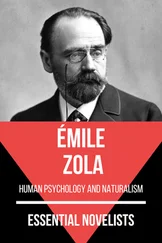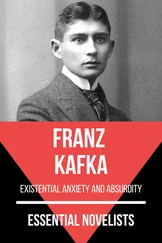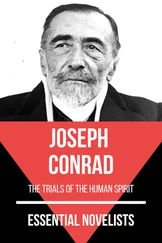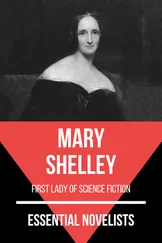I watched John as he stood by the fire; his thoughtful brow and firm-set lips contradicting the youthfulness of his looks. Few as were his years, he had learnt much in them. He was at heart a man, ready and able to design and carry out a man’s work in the world. And in his whole aspect was such grave purity, such honest truth, that no wonder, young as they both were, and little as she knew of him, this poor orphan should not have feared to trust him entirely. And there is nothing that binds heart to heart, of lovers or friends, so quickly and so safely, as to trust and be trusted in time of trouble.
“Did she tell you any more, John? Anything of her circumstances?”
“No. But from something Mrs. Tod let fall, I fear”— and he vainly tried to disguise his extreme satisfaction —“that she will be left with little or nothing.”
“Poor Miss March!”
“Why call her poor? She is not a woman to be pitied, but to be honoured. You would have thought so, had you seen her this morning. So gentle — so wise — so brave. Phineas,”— and I could see his lips tremble —“that was the kind of woman Solomon meant, when he said, ‘Her price was above rubies.’”
“I think so too. I doubt not that when she marries Ursula March will be ‘a crown to her husband.’”
My words, or the half sigh that accompanied them — I could not help it — seemed to startle John, but he made no remark. Nor did we recur to the subject again that day.
Two days after, our little company followed the coffin out of the woodbine porch — where we had last said good-bye to poor Mr. March — across the few yards of common, to the churchyard, scarcely larger than a cottage garden, where, at long intervals, the few Enderley dead were laid.
A small procession — the daughter first, supported by good Mrs. Tod, then John Halifax and I. So we buried him — the stranger who, at this time, and henceforth, seemed even, as John had expressed it, “our dead,” our own.
We followed the orphan home. She had walked firmly, and stood by the grave-side motionless, her hood drawn over her face. But when we came back to Rose Cottage door, and she gave a quick, startled glance up at the familiar window, we saw Mrs. Tod take her, unresisting, into her motherly arms — then we knew how it would be.
“Come away,” said John, in a smothered voice — and we came away.
All that day we sat in our parlour — Mr. March’s parlour that had been — where, through the no longer darkened casement, the unwonted sun poured in. We tried to settle to our ordinary ways, and feel as if this were like all other days — our old sunshiny days at Enderley. But it would not do. Some imperceptible but great change had taken place. It seemed a year since that Saturday afternoon, when we were drinking tea so merrily under the apple-tree in the field.
We heard no more from Miss March that day. The next, we received a message of thanks for our “kindness.” She had given way at last, Mrs. Tod said, and kept her chamber, not seriously ill, but in spirit thoroughly broken down. For three days more, when I went to meet John returning from Norton Bury, I could see that his first glance, as he rode up between the chestnut trees, was to the window of the room that had been mine. I always told him, without his asking, whatever Mrs. Tod had told me about her state; he used to listen, generally in silence, and then speak of something else. He hardly ever mentioned Miss March’s name.
On the fourth morning, I happened to ask him if he had told my father what had occurred here?
“No.”
I looked surprised.
“Did you wish me to tell him? I will, if you like, Phineas.”
“Oh, no. He takes little interest in strangers.”
Soon after, as he lingered about the parlour, John said:
“Probably I may be late to-night. After business hours I want to have a little talk with your father.”
He stood irresolutely by the fire. I knew by his countenance that there was something on his mind.
“David.”
“Ay, lad.”
“Will you not tell me first what you want to say to my father?”
“I can’t stay now. To-night, perhaps. But, pshaw! what is there to be told? ‘Nothing.’”
“Anything that concerns you can never be to me quite ‘nothing.’”
“I know that,” he said, affectionately, and went out of the room.
When he came in he looked much more cheerful — stood switching his riding-whip after the old habit, and called upon me to admire his favourite brown mare.
“I do; and her master likewise. John, when you’re on horseback you look like a young knight of the Middle Ages. Maybe, some of the old Norman blood was in ‘Guy Halifax, gentleman.’”
It was a dangerous allusion. He changed colour so rapidly and violently that I thought I had angered him.
“No — that would not matter — cannot — cannot — never shall. I am what God made me, and what, with His blessing, I will make myself.”
He said no more, and very soon afterwards he rode away. But not before, as every day, I had noticed that wistful wandering glance up at the darkened window of the room, where sad and alone, save for kindly Mrs. Tod, the young orphan lay.
In the evening, just before bed-time, he said to me with a rather sad smile, “Phineas, you wanted to know what it was that I wished to speak about to your father?”
“Ay, do tell me.”
“It is hardly worth telling. Only to ask him how he set up in business for himself. He was, I believe, little older than I am now.”
“Just twenty-one.”
“And I shall be twenty-one next June.”
“Are you thinking of setting up for yourself?”
“A likely matter!” and he laughed, rather bitterly, I thought —“when every trade requires capital, and the only trade I thoroughly understand, a very large one. No, no, Phineas; you’ll not see me setting up a rival tan-yard next year. My capital is NIL.”
“Except youth, health, courage, honour, honesty, and a few other such trifles.”
“None of which I can coin into money, however. And your father has expressly told me that without money a tanner can do nothing.”
“Unless, as was his own case, he was taken into some partnership where his services were so valuable as to be received instead of capital. True, my father earned little at first, scarcely more than you earn now; but he managed to live respectably, and, in course of time, to marry.”
I avoided looking at John as I said the last word. He made no answer, but in a little time he came and leaned over my chair.
“Phineas, you are a wise counsellor —‘a brother born for adversity.’ I have been vexing myself a good deal about my future, but now I will take heart. Perhaps, some day, neither you nor any one else will be ashamed of me.”
“No one could, even now, seeing you as you really are.”
“As John Halifax, not as the tanner’s ‘prentice boy? Oh! lad — there the goad sticks. Here I forget everything unpleasant; I am my own free natural self; but the minute I get back to Norton Bury — however, it is a wrong, a wicked feeling, and must be kept down. Let us talk of something else.”
“Of Miss March? She has been greatly better all day.”
“She? No, not her to-night!” he said, hurriedly. “Pah! I could almost fancy the odour of these hides on my hands still. Give me a candle.”
He went up-stairs, and only came down a few minutes before bed-time.
Next morning was Sunday. After the bells had done ringing we saw a black-veiled figure pass our window. Poor girl! — going to church alone. We followed — taking care that she should not see us, either during service or afterwards. We did not see anything more of her that day.
On Monday a message came, saying that Miss March would be glad to speak with us both. Of course we went.
Читать дальше
